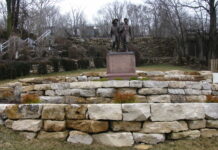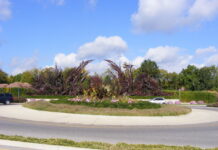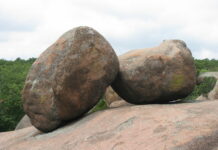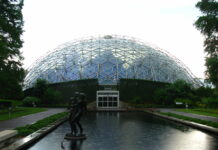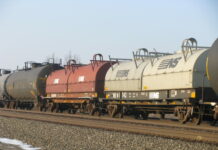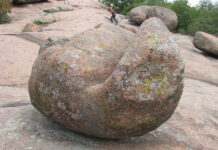Photo credit: DiasporaEngager (www.DiasporaEngager.com).
The Lawen sisters, known as eco-warriors in Seychelles, published the paper recently after numerous beach clean-ups on the islands over a four-year period. (Alvania Lawen)
Photo license Purchase photo
Two Seychellois sisters have published a paper in which they have compiled and analysed data on beach debris and plastic in the Inner Islands group of Seychelles.
The paper entitled “Beached plastic and other anthropogenic debris in the inner Seychelles islands: Results of a citizen science approach,” was written by Alvania Lawen, a student at the University of Plymouth in England and a Parley coordinator, with her twin sister, Jessica Lawen, country surveyor at Parley for the Oceans, based in the United States.
The Lawen sisters, known as eco-warriors in Seychelles, published the paper recently after numerous beach clean-ups on the islands over a four-year period. They were able to collect and analyse the amount of beach debris and plastic that washed up on Seychelles’ shores.
Alvania Lawen told SNA about her passion for the environment which led her to notice how big of an issue plastic pollution is for Seychelles, an archipelago in the western Indian Ocean.
“Seeing how Seychelles is affected so much by waste that comes from illegal dumping or those that wash up from other countries, I always felt that I need to find a solution for this problem,” she said.
| The sisters were able to collect and analyse the amount of beach debris and plastic that washed up on Seychelles’ shores. (Alvania Lawen) Photo License: All Rights Reserved |
Lawen added that after she began her work by organising beach clean-ups around Seychelles alongside Parley for the Oceans, she then shifted her focus towards plastic waste.
“This paper represents a summary of the five years from 2019 up till now, of the beach clean-ups and collection of the debris and plastics,” said Lawen.
She explained that during the beach clean-ups, aside from collecting the debris, they measured and recorded all of the waste collected and a lot of work went analysing the data.
“I did not plan on writing a paper on it, but it just came about by chance, when I was discussing plastics with a fellow academic at the university and he suggested that we should write a paper about it,” said Lawen.
She said that her fellow academic, Andrew Turner, worked on most of the statistics, which is his speciality.
Lawen said that the paper is free for anyone to read and hopes that from the data they have collected, further actions can be taken.
“The issue of littering in Seychelles, especially when it comes to plastics, has to stop,” she said adding that this is a big issue and there needs to be a collective effort to ensure that it must stop.
Lawen said that after the disasters of December 7, when it rained heavily in the north of Mahe, the main island, her sister, Jessica organised a beach clean-up and the amount of plastic waste collected was just too much.
“This is a big problem and the only way it can stop is to have a change of behaviour among the people, so that we can continue to preserve our beautiful country, as if it continues like this, in the future we won’t have beaches, but instead will have only plastic waste on our shores,” she added.
Source of original article: Seychelles News Agency (www.seychellesnewsagency.com).
The content of this article does not necessarily reflect the views or opinion of Global Diaspora News (www.GlobalDiasporaNews.com).
To submit your press release: (https://www.GlobalDiasporaNews.com/pr).
To advertise on Global Diaspora News: (www.GlobalDiasporaNews.com/ads).
Sign up to Global Diaspora News newsletter (https://www.GlobalDiasporaNews.com/newsletter/) to start receiving updates and opportunities directly in your email inbox for free.




